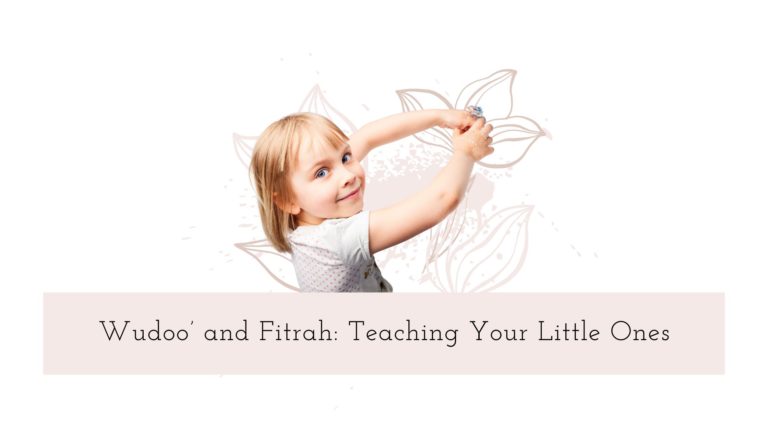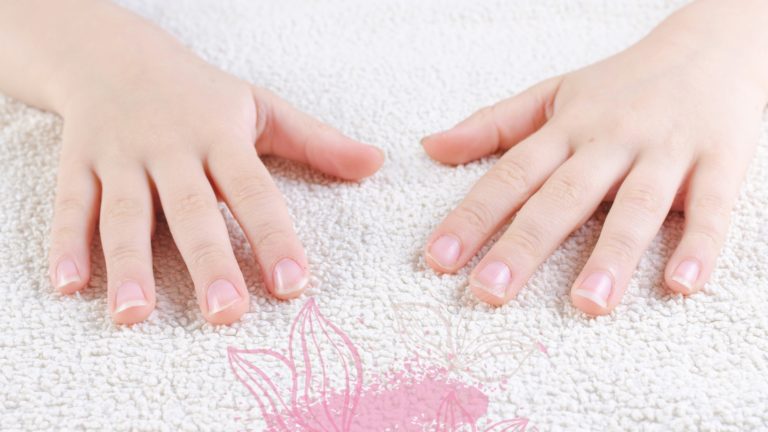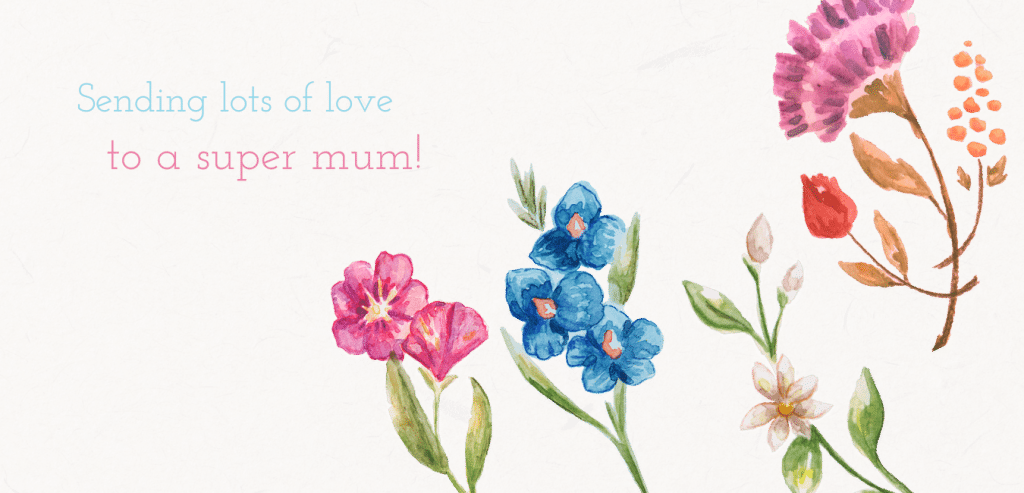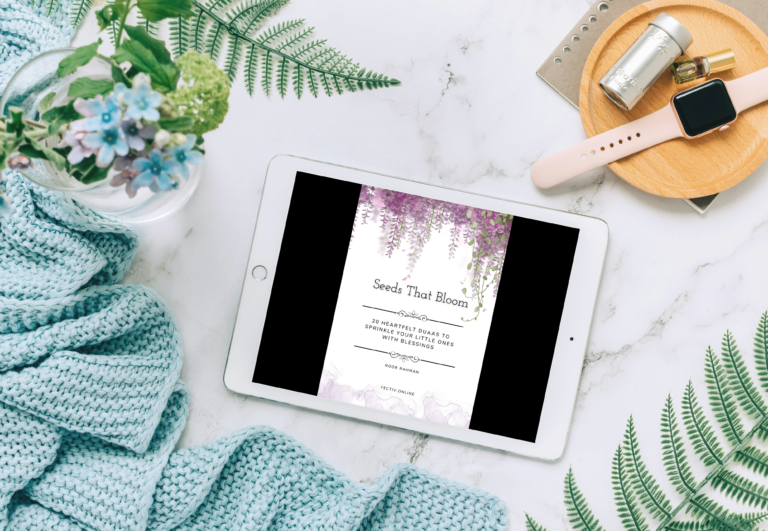
Wudoo’ and Fitrah: Teaching Your Little Ones
As a Muslim mom, imagine the serene moment when you see your little one perform their first Wudoo’, mimicking your movements. Just the thought warms your heart, doesn’t it?
When I started teaching my eldest how to perform Wudoo’, we practised a little bit every day, step-by-step. It took her over a month to do one perfect Wudoo’ on her own without help.
Wudoo and Fitrah practices are rewarding actions that they’ll be performing multiple times every day for the rest of their lives. So, take it slow, teaching them patiently, one step at a time.
Today, we’ll explore these beautiful acts of purification and how they can pave the way for a future filled with faith and forgiveness.
The Art of Wudoo’ and Its Blessings
Humraan, the freed slave of Uthmaan, said: Uthmaan ibn Affaan (radiyallaahu anh) called for water for Wudoo’, to perform Wudoo’.
- He washed his hands three times,
- Then he rinsed his mouth and nose,
- Then he washed his face three times,
- Then he washed his right hand up to the elbow three times,
- Then he washed his left hand in like manner.
- Then he wiped his head,
- Then he washed his right foot up to the ankle three times,
- Then he washed his left foot in like manner.
Then he said: “I saw the Messenger of Allaah (sallallaahu alayhi wasallam) performing Wudoo’ as I have done it, then the Messenger of Allaah (sallallaahu alayhi wasallam) said, “Whoever performs Wudoo’ as I have done it, then stands up and prays two Rak’ah in which he does not let his mind wander, he will be forgiven his previous sins.” This refers to our minor sins. Allaah has said, “If you avoid al-Kabaa’ir (the Major Sins) from which you have been prohibited – We will remit from you Sayyi’aatikum (your Minor Sins) and admit you to a gate of great honour.”
Wudoo’ is more than a cleansing ritual; it is a passport to Salaah, a path towards forgiveness. By teaching our children these steps above, we’re teaching them a lifelong habit of purification.
Remember, Wudoo’ is not just about physical cleanliness, but it’s also a form of mental and spiritual preparation.

Instilling the Tenets of Fitrah in Your Child
The following things are part of the Fitrah:
- Trimming the moustache,
- Letting the beard grow,
- Using the Siwaak,
- Rinsing the nose with water,
- Cutting the nails,
- Rinsing the finger joints,
- Plucking the armpit hair,
- Shaving the pubes,
- And Intiqaas (cleansing) using water.
Following the Fitrah, or natural state, is a way of upholding personal hygiene and respect for Allah’s creation – our bodies. These tenets can be introduced gradually as your child grows, presenting them as loving acts of self-care from Islaam, not just rules to follow.
Making Wudoo’ and Fitrah Practices a Family Affair
Wudoo’, prayer, and following the Fitrah practices purify us, not only physically but also spiritually. By teaching our children these practices, we’re equipping them with tools for a lifetime of mindfulness and piety.
Include your children in your daily routine of Wudoo’ and remind them to follow the Fitrah practices. Make Wudoo a shared, joyful experience. This is a wonderful way to bond as a family while instilling valuable life lessons.
Conclusion
Remember, your children are watching you and learning from you every day. By incorporating Wudoo’ into their daily routine and encouraging them to follow the Fitrah practices, you’ll be setting a strong foundation for their future as practicing (practising?) Muslims.
Here’s a beautiful thought: every time they perform Wudoo’ or follow Fitrah practices, they’re not just purifying themselves; they’re also adding to the sea of goodness you’ve started. That’s the beauty of motherhood, isn’t it?
To wrap it up, teaching your children about Wudoo’ and Fitrah practices is not just about instilling good habits, but it’s also about laying a strong foundation of faith, purity, and connection to Allah. May our efforts be blessed and may our children grow to be strong, compassionate, and practicing Muslims.
Raising children can be a challenge, but we’ve got you covered with our 30-Day Islamic Parenting Checklist. It’s a roadmap for nurturing quality interactions and spiritual growth in your little ones. Don’t miss out on this FREE exclusive tool! Enhance your parenting journey and Get the checklist now for happier children in this world and the Hereafter.



